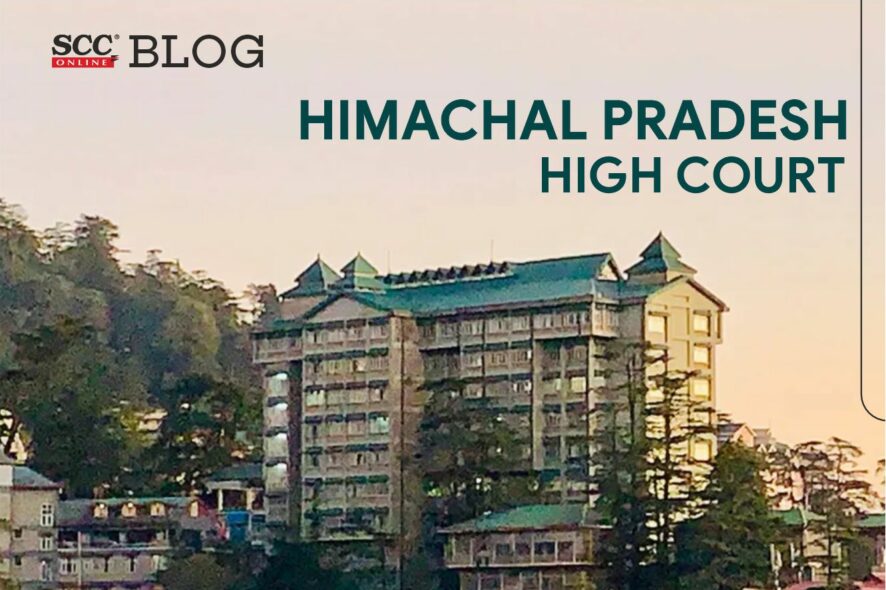Himachal Pradesh High Court| Dismissing a petition seeking her transfer to favorable station, a Division Bench comprising of Tarlok Singh Chauhan* and Virender Singh, JJ., held that the grounds sought for transfer are not sufficient.
The instant petition was filed by the petitioner, a teacher appointed as TGT (Arts) at GSSS Kotkhai, Shimla, seeking her transfer to a station of her choice on the grounds that both she and her husband suffers from a medical condition and her mother-in-law is aged and dependent on petitioner and her husband. Moreover, the present place of posting is at about 220 kms from her native place.
The Court held that the grounds sought by the petition are not sufficient to accede to her request of transfer. The Court observed that
“Once the petitioner is currently aged about 48 years, it requires no rocket science to assume that her in-laws, especially, mother-in-law, would obviously be in the 80’s and would also be facing age related issues but this is probably too for all those employees who are fortunate to have the parents, in-laws or any of them alive. Even the averments regarding the so-called medical problems being faced by the petitioner are totally unsubstantiated and, therefore, her request even on this ground cannot be acceded to.”
Discussing the functions of a person practicing the noble teaching profession, the Court referred to Avinash Nagar v. Navodaya Vidyalaya Samiti, (1997) 2 SCC 534, where it was held that
“As a member of the noble teaching profession and a citizen of India he should always be willing, self-disciplined, dedicated with integrity to remain ever a learner of knowledge, intelligently to articulate and communicate and imbibe in his students…”
The Court opined that it is the duty of the teacher to take care of his/her student as a parent and he/she should be a dedicated and disciplined teacher as without them even the best education system is bound to fail.
Expressing its concern regarding keeping one’s (teacher) self-interest above the needs of the students, the Court stated that
“It would be a very lamentable state of affairs that when teachers who are considered as equal to God, would fall from the highest pedestal to the lowest level by caring and looking after their self- interests alone and not the interest of their pupil(s).”
Explaining the importance of Educational institution, the Court stated that
“It is the educational institutions which are the future hope of this country. They lay the seed for the foundation of morality, ethics and discipline. If there is any erosion or descending by those who control the activities all expectations and hopes are destroyed.”
The Court also referred to Sushmita Basu v. Ballygunge Siksha Samity, (2006) 7 SCC 680, where the role of the teacher was discussed by the Supreme Court. The Supreme Court opined that
“A teacher’s profession calls for a little sacrifice in the interests of the nation. The main asset of a teacher is his students former and present. (…) The teachers of today must ensure that this great Indian concept and the reverential position they hold, is not sacrificed at the altar of avarice.”
Condemning the behavior of the teachers and Government, the Court stated that the Education Department is one of the biggest litigants before it and majority of these writ petitions only relate to the transfer and adjustment of the teachers.
Not appreciating the conduct of the petitioner, the Court stated that “it is reprehensible instead of being thankful to the almighty for providing her with the government job at the age of 47 years, the petitioner is trying to seek comfort” and dismissed the petition on not finding any merit.
[Anita Kumari v. State of H.P., 2022 SCC OnLine HP 5012, decided on 28-09-2022]
Advocates who appeared in this case:
Mr. Mohit Thakur and Mr. Suneet Singh, Counsel for the Petitioner
Mr. Ashok Sharma (Advocate General), Mr. Vinod Thakur and Mr. Shiv Pal Manhans (Additional Advocate General) and Mr. Rajat Chauhan (Law Officer), Counsel for the Respondent/State
*Ritu Singh, Editorial Assistant has put this report together.







